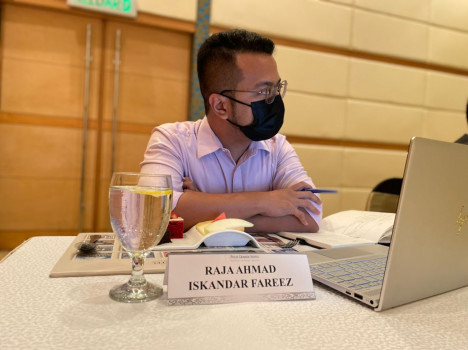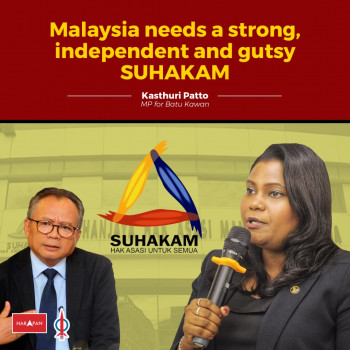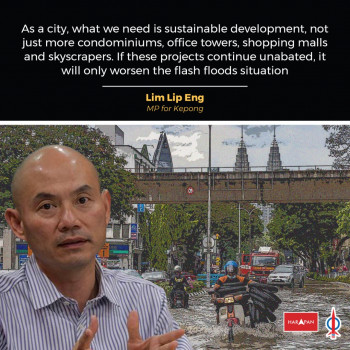by Wong Chin Huat
As published in the gazette on Jan 14, 2013, the Election Commission (EC) has changed the postal voting bylaw to extend postal voting rights to more – but not all – overseas Malaysians.
Both the two exclusionary criteria are based on residency.
First of all, ordinary Malaysian voters residing in Singapore, Brunei, Southern Thailand and Kalimantan are not entitled to the postal voting facilities.
Secondly, even for other ordinary overseas Malaysian voters, they would have to first prove that they have been “in Malaysia, or returns to Malaysia, for a period of not less than thirty (30) days within five (5) years before dissolution of Parliament or any State Legislative Assembly in force”.
Previously the only “absent overseas voters” who vote on postal ballots are civil servants and students and their wives. These rights are unaffected by the new changes but they are only a fraction of Malaysians residing abroad.
To vote by post, or not?
Well, if you insist on seeing a half-full rather a half-empty glass, you should cheer for the EC’s move.
However, if one were to take a closer look at the amendment, it is not amusing at all.
To begin with, the residency in Malaysia requirement is worded exclusively for general elections, whether for federation or state.
As such, ordinary overseas voters cannot vote on postal ballots should by-elections take place after the General Election
Next, since Malaysians have been using biometric passports since 1998 – the first in the world – there is no stamped date of our entry and exit on our passports.
How many overseas Malaysians would have kept a log of their movement in and out of the country – which is required in the registration form 1B? Will the immigration provide easy access to our travel records?
And what about those who travel to Malaysia via Singapore or some other checkpoints, where more often than not the Malaysian immigration officials would pay no more than a cursory look at our passports and then do nothing to record our entry or exits?
Why the exclusion?
Now, even if we move on to the exclusion based on country of residency, is it justified? Why is it assumed that those who live in Singapore are from Johor and not Kelantan or Sabah, or that someone who works and lives in Kalimantan must be from Sabah and Sarawak and cannot be from Penang or Terengganu?
It is clearly ridiculous for the EC to assume that Malaysians living in a neighbouring country must be from the border town.
And in the case of Kalimantan, how many hours would one spend on the flight and transit from Tawau to Pontianak?
Or from Kapit in Sarawak to Palangkaraya, Central Kalimantan, by whatever means of transport?
As a matter of fact, travelling from Sandakan to Santubung in Sarawak, let alone from either to Sauk of Perak, to exercise one’s duty to vote is taxing in time and money.
Civil society has been calling for absentee voting facilities to be provided for domestic voters, at least between Sabah, Sarawak and the Peninsula. Unfortunately all these have been falling on to the deaf ears of the EC.
As the custodian of the electoral process, the EC should do everything it can to encourage voter registration and voting.
If postal voting can get more of the 300,000 Malaysians residing in Singapore to vote, why should we indirectly suppress their turnout by forcing them to travel home to vote?
Similarly, if overseas Malaysians care enough to keep their citizenship, why should they be deprived of their right to vote but called upon to serve the nation only when we need their talents, money, skills and network? Why don’t we also impose residency conditions in the TalentCorp programme and tell those who have not spent at least 30 days in the past five years to take a hike?
No constitutional basis
The disenfranchising of overseas Malaysians has no basis in our Federal Constitution.
In the Constitution, residency is only a criterion for one to be registered in a particular constituency, and not a pre-requisite to be registered in the national electoral roll. Article 119 provides for any registered voter to vote as an ordinary voter or absent voter (the violation of which has been so commonly allowed by the EC with hundreds of thousands of non-resident voters).
Residency is not a criterion to be in the national electorate as Article 119 provides for any registered voters to vote as ordinary voter or absent voter.
Unfortunately, the EC had in the past disenfranchised overseas Malaysians by confining absent voters on the basis of occupation to soldiers, civil servants overseas, overseas students and their spouses.
Notwithstanding the expansion, the EC is actually continuing its business of disenfranchisement.
Why is EC so obsessed with disenfranchisement?
Sorry, this is not a fair statement. While working hard to disenfranchise Malaysians, the EC has also been busy enfranchising foreigners by making them instant Malaysians.
And these instant Malaysians from the Philippines, Indonesia, Pakistan and perhaps many more countries then vote in our national – sorry, international – governments for Sabah and by derivation, Malaysia.
http://www.themalaysianinsider.com/malaysia/article/ec-ordered-nrd-to-give-ics-change-immigrants-names-rci-told
And our internationally-elected former Prime Minister Tun Dr Mahathir Mohamad said that the inclusion of these voters was legal because “many in Sabah have been there for over 20 to 30 years. They speak Malay. They have the right to be citizens.”
See, that’s where residency does magic!
Foreigners allowed to vote
If foreigners gain their voting right for living here for an X number of years or months, why should Malaysians lose theirs just because they are unable to return for 30 days in the past five years?
It is obscene for EC to decide if residency can be used to enfranchise foreigners and disenfranchise citizens.
The upcoming elections hence are not just about deciding the government but more fundamentally about whether to exercise the rights of citizenship.
So, if you can come home to vote, do return to ensure your vote is counted.
Postal voters cannot vote in person. So, if you are planning on returning to vote don’t register yourself for postal voting.
And if possible, offer yourself to observe postal voting at our foreign missions. Even if EC denies observers inside the missions, observers can be stationed outside the gates.
In the past, most if not all overseas votes were not sent back in time to be counted. This time, we will not allow postal voting to be a scam or a fiasco.
If you believe that the next elections are about reclaiming Malaysia for Malaysians, whether or not you are excluded now, you may want to consider coming back to vote and get your vote counted.
In the past, most if not all overseas votes were not sent back in time to be counted. Until now, EC has not promised a longer campaign period to allow a better turnover period for postal votes.
They might just be too busy registering foreigners who love this country enough to stay more than 30 days in the past five years.
____________________________
* This article first appeared in the Selangor Times




Pingback: GE13: BUBAR Already, So What? (Part 2) | Ka Vee's Blog